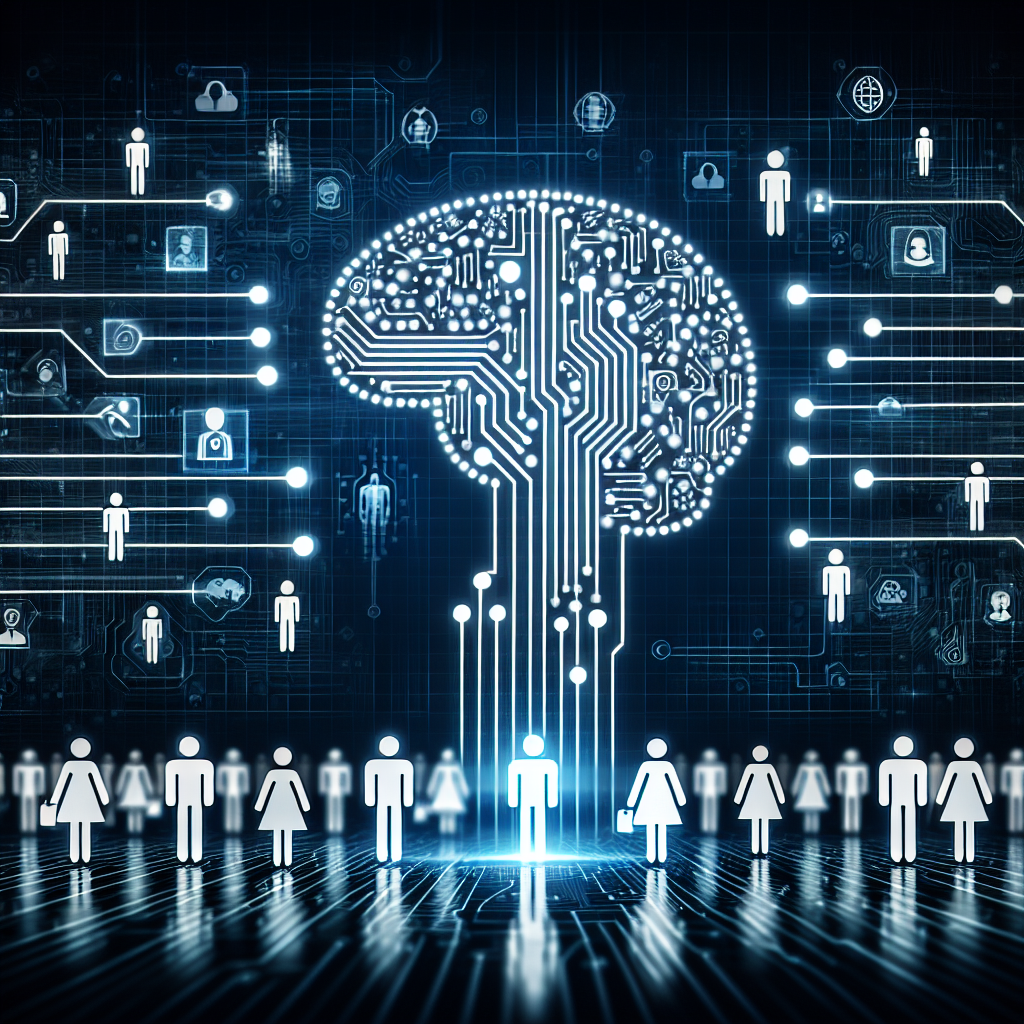Artificial Intelligence (AI) has been making significant strides in various industries, and talent acquisition is no exception. AI has revolutionized the hiring process by streamlining recruitment, improving candidate experience, and enhancing decision-making. By leveraging AI technologies, organizations can make more informed hiring decisions, reduce time-to-fill, and increase the quality of hires. In this article, we will explore the role of AI in talent acquisition and how it is transforming the recruitment landscape.
AI in Talent Acquisition: Improving Hiring Processes
1. Automated Screening and Sourcing
One of the key benefits of AI in talent acquisition is its ability to automate the screening and sourcing of candidates. AI-powered tools can analyze resumes, job descriptions, and other relevant data to match candidates with job requirements. This not only saves time for recruiters but also ensures that only the most qualified candidates are considered for the job.
AI algorithms can also help recruiters identify passive candidates who may not be actively seeking job opportunities. By analyzing candidates’ online profiles, social media activity, and other data points, AI can provide valuable insights into potential candidates who may be a good fit for the organization.
2. Improved Candidate Experience
AI technologies can enhance the candidate experience by providing personalized interactions and feedback throughout the recruitment process. Chatbots, for example, can engage with candidates, answer their questions, and provide updates on their application status. This not only improves communication but also helps to create a positive impression of the organization.
AI can also facilitate a more seamless application process by simplifying the submission of resumes, scheduling interviews, and providing feedback to candidates. By automating these tasks, recruiters can focus on building relationships with candidates and ensuring a positive experience for all applicants.
3. Data-Driven Decision Making
AI enables data-driven decision-making by providing insights into recruitment trends, candidate preferences, and hiring outcomes. By analyzing large volumes of data, AI algorithms can identify patterns, predict outcomes, and recommend actions to improve the hiring process.
For example, AI can analyze the performance of past hires to identify the characteristics of successful employees. This information can then be used to create predictive models that help recruiters identify candidates who are likely to succeed in the role. By leveraging these insights, organizations can make more informed hiring decisions and improve the quality of hires.
4. Bias Reduction
One of the challenges in traditional recruitment processes is unconscious bias, which can lead to discrimination and unfair hiring practices. AI technologies can help reduce bias by focusing on objective criteria and removing subjective elements from the selection process.
AI algorithms can be trained to identify and mitigate bias in job descriptions, resume screening, and candidate evaluation. By using algorithms that focus on skills, qualifications, and experience, organizations can ensure that all candidates are evaluated based on their merit rather than subjective factors.
FAQs
Q: How can AI help organizations attract top talent?
A: AI can help organizations attract top talent by optimizing job postings, targeting passive candidates, and providing personalized interactions with candidates. By leveraging AI technologies, organizations can create a more engaging and efficient recruitment process that attracts high-quality candidates.
Q: What are the risks of using AI in talent acquisition?
A: While AI offers many benefits in talent acquisition, there are also risks to consider. One of the main concerns is the potential for bias in AI algorithms, which can lead to unfair hiring practices. Organizations must carefully monitor and evaluate AI tools to ensure that they are promoting diversity and inclusion in their recruitment processes.
Q: How can organizations ensure that AI is implemented ethically in talent acquisition?
A: Organizations can ensure that AI is implemented ethically in talent acquisition by establishing clear guidelines, monitoring for bias, and providing training for recruiters on how to use AI tools responsibly. By promoting transparency and accountability in the use of AI, organizations can mitigate ethical risks and ensure a fair and inclusive recruitment process.
In conclusion, AI is transforming talent acquisition by improving hiring processes, enhancing candidate experience, and enabling data-driven decision-making. By leveraging AI technologies, organizations can attract top talent, reduce bias, and make more informed hiring decisions. As AI continues to evolve, it will play an increasingly important role in shaping the future of recruitment and talent acquisition.

